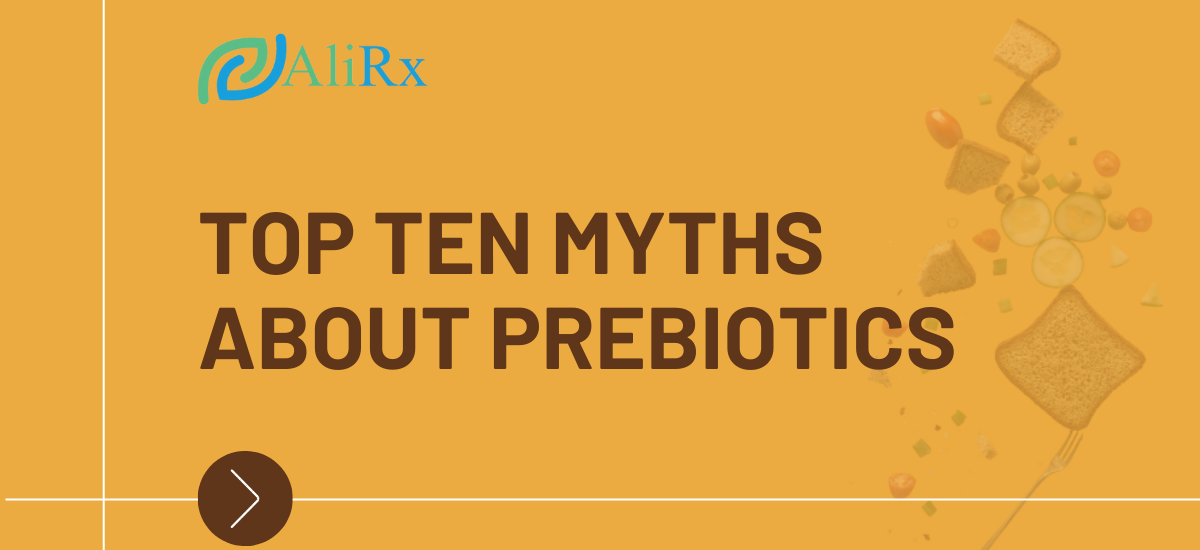Prebiotics are a type of fiber that feed the beneficial bacteria in our gut, promoting a healthy microbiome and potentially benefiting our overall health. However, there are several myths and misconceptions surrounding prebiotics that can lead to confusion or even prevent people from consuming them.
In this article, we’ll debunk the top ten myths about prebiotics and provide evidence-based information to help you make informed decisions about your gut health.
- Prebiotics are the same as probiotics. Prebiotics are different from probiotics in that they are a type of fiber that feed the good bacteria in your gut, while probiotics are live bacteria that provide health benefits.
- Prebiotics are only found in supplements. Prebiotics are found naturally in many foods such as garlic, onions, bananas, and asparagus.
- Prebiotics are only important for digestive health. Prebiotics can also support immune health, improve mineral absorption, and help regulate appetite.
- Prebiotics are not necessary if you take probiotics. While probiotics are important for maintaining a healthy gut microbiome, prebiotics are necessary to feed and nourish the good bacteria in your gut.
- All prebiotics are the same. There are different types of prebiotics, such as inulin and fructooligosaccharides, and they can have different health benefits.
- Prebiotics are only for people with digestive issues. Anyone can benefit from incorporating prebiotic-rich foods or supplements into their diet.
- You can’t eat too many prebiotics. While prebiotics can be beneficial, consuming too much can lead to digestive discomfort such as bloating or gas.
- Prebiotics are not natural. Prebiotics occur naturally in many foods and can also be produced in a lab for use in supplements.
- Prebiotics are only for adults. Children and infants can also benefit from prebiotics to support their gut health.
- Prebiotics have no side effects. While generally safe, consuming high doses of prebiotics can lead to digestive discomfort or diarrhea in some individuals.
In recent years, prebiotics have become a popular topic in the world of nutrition and health. However, there are many myths and misconceptions surrounding prebiotics that can be confusing for consumers. By dispelling these myths, we can gain a better understanding of the benefits of prebiotics and how they can support a healthy gut microbiome.
Overall, understanding the true nature of prebiotics and their role in gut health is key to making informed decisions about our diets and overall health. By incorporating prebiotic-rich foods into our diets and working with healthcare professionals to address specific health concerns, we can support a healthy gut microbiome and promote overall wellness.





